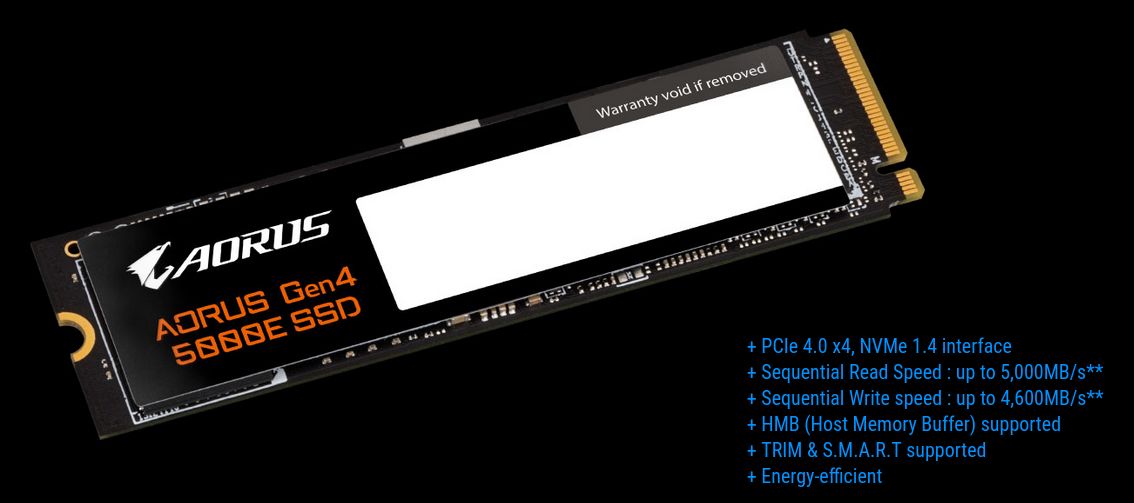GIGABYTEone of the leading companies in high performance hardware and components and for playing gamesshe announced AORUS Gen4 5000E, one SSD on PCIe 4.0 and in M.2 format. It is available in capacities of 500 and 1000 gigabytes and is able to read at 5000 MB per second and with 30% lower power consumption compared to the previous generation on PCIe 4. In addition to the performance that corresponds to the expected product of its category, it has also been built to guarantee stability.
Diving into the details, the AORUS Gen4 5000E SSD is supported at the interface level PCIe 4.0 x4 and NVMe 1.4. It has a 2280 M.2 design and select 3D TLC NAND flash, provides Transfer speeds up to 1600 MT/s 5000 MB/s with professional tuning by GIGABYTE R&D.
Thanks to its lower power consumption, it is able to keep the system running with a high performance profile with low power consumption, which together with the Thermal Guard feature present in GIGABYTE motherboards allows the SSD to display its full performance while minimizing risk. of heat suffocation. The user will thus always have a fast and long-lasting experience with temperatures under control.

The AORUS Gen4 5000E has been verified through rigorous testing on GIGABYTE motherboards with various chipsets that cover high load, high temperature and high stress. Also, TRIM & SMART technology ensures stability and durability, while HMB (Host Memory Buffer) allows system memory to work with the SSD to optimize overall performance.
Jackson Hsu, director of product development at GIGABYTE Channel Solutions, said of the new SSD that “Since the renowned PCIe 4.0 SSD was first launched in 2019, GIGABYTE has continued to believe in providing high-quality products that meet the demands of superior performance and ultra-durability. AORUS Gen4 5000E SSD with 5000MB/s read speed plays a key role in improving storage performance“.
The AORUS Gen4 5000E in its two variants should be launched soon. Those interested can take a look at the product file on the GIGABYTE website to check all its specifications and capabilities.














